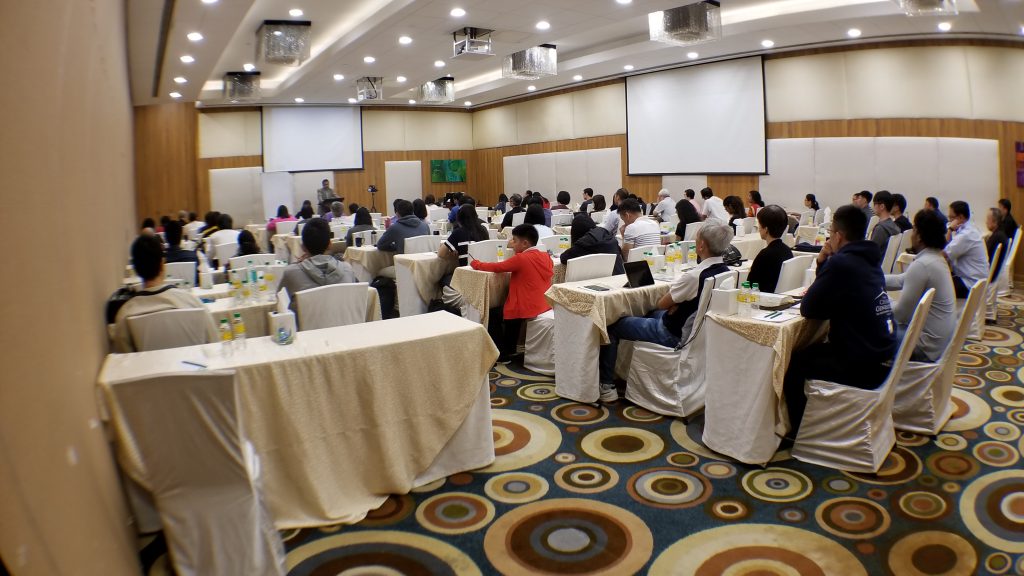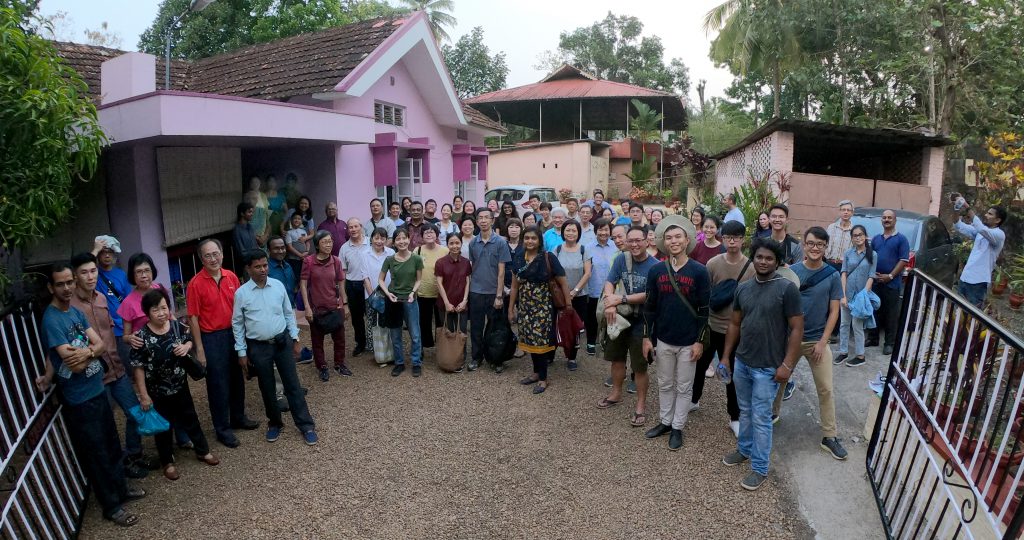Our church’s ministry has always been filled with many needs and struggles. But we have been driven by those dire situations to seek God in prayer and declare our confidence in the counsels and promises of His Word. Exodus 15:22-27 shows us, through the experiences of Israel and Moses, that our extreme experiences of awful anxiety, terrible bitterness, as well as deadly gloom will be opportunities for God to cheer us and show His magnanimous provisions for our delight.
Predicaments Facing Our Forward March
Since Israel left Egypt to follow Moses, they were brought into one trouble after another. As soon as they reached the Red Sea, they were entrapped by the chasing Egyptian army of Pharaoh between the mountain ranges and the sea. The people were perturbed and murmured. But the Lord delivered them by parting the Red Sea and then drowning the Egyptian army by bring the waters upon them. After that nerve-racking situation, "Moses brought Israel from the Red sea, and they went out into the wilderness of Shur; and they went three days in the wilderness, and found no water" (v. 22).
Moses was leading the people through a path ridden with problems, which neither the people nor he could resolve or overcome. They trekked three days through the arid wilderness of Shur with no water to quench their thirst. At last, they found water in a place called Marah, but even then "they could not drink of the waters of Marah, for they were bitter" (v. 23). Apparently, the water they drank was not only distasteful but also deleterious, for later we read of the LORD’s promised healing to the people who drank the water of Marah (cf. v. 26). What a predicament it was that the thirsty ones could only find unsavoury and unhealthy water for consumption!
As a leader, Moses could not have done any better in leading the people. He did exactly what the LORD had directed. Those puzzling predicaments they faced along the way were all ordained of the LORD. Moses’ greatest concern was to be faithful to God’s directions, rather than making people happy and comfortable. He led the people according to God’s instructions, though unpleasant and unacceptable to the people. God’s voice was greater in his soul than the protests of His people.
A true spiritual leader is first and foremost a servant to God. He obeys the will of His God, and not the people’s. His greatest concern is God’s instructions and not people’s likes and comforts. In God’s kingdom, the government is not by the people. Instead, people yield themselves to be governed by God’s will. A leadership totally given to God’s authority is, to so many people, unsuitable, unpragmatic and unbearable. Like Moses, all spiritual leaders (be they husbands, fathers or church leaders) must take their stand with God who ordains them in their leadership role, and then exhort and guide the people by His Word. People’s unhappiness or objection should not deter them from their insistence in going forward as the Lord commands. Patient endurance of trials and forfeiture of comfort, pleasure and even our very life are expected as we follow the LORD’s will. Remember Jesus words – "Whosoever will come after me, let him deny himself, and take up his cross, and follow me" (Mark 8:34).
Prayer Fortifies Us for the Forward March
People’s protests got louder and louder. "And the people murmured against Moses, saying, What shall we drink?" (v. 24). They were not just expressing their grievances to Moses, but were murmuring against Moses. It must have been very disheartening for Moses. Even though the predicament they faced was not due to Moses’ mistake or misjudgment, they were angry with him.
Moses responded to the crisis with prayer. "And he cried unto the LORD" (v. 25a). Prayer was Moses’ only solution to the people’s tumultuous rising against his leadership over the lack of drinkable water. He must have prayed not only that God will help to calm the people’s revolt, but also provide for their thirst. The great masses of Israelites appear to have forgotten to pray in their need. Instead of praying, they foolishly murmured in protest. But Moses was wise; he waxed strong in prayer and overcame both their need and revolt through prayer. He trusted the Lord in this time of need and distress.
Brethren, the right response in the hour of great need and trouble is fervent prayer. Let us not be weary to pray. How happy should we be to have a God to go to in time of trouble! His ears are not heavy that He cannot hear, nor His hands shortened that He cannot deliver us! Like Moses, we must be confident in the grace, power and faithfulness of God to make good the promises He has made to us.
Provision for Our Forward March
The Lord heard Moses’ prayer and pointed out to him a particular tree that was to be cast into the bitter water in order to sweeten it. "The LORD shewed him a tree, which when he had cast into the waters, the waters were made sweet" (v. 25b). A question has been asked as to whether the tree inherently possessed a sweetening property. As it is, we have no information about the tree possessing such a natural property. The most significant fact is the miraculous change of taste and quality of water. Just think of how much water was purified to speedily provide for 600,000 thirsty men, their wives, children and cattle. It must have been a large collection of water for so many. What an abundant, astounding provision!
The Israelites, even with Moses as their leader, had no skill to meet their necessities of the hour. But "the Lord showed … a tree" to turn the bitter water into a sweet, refreshing spring. A great trial was thus transformed into a great blessing. The bitter water was converted into sweet water, which was a divine work of provision. Brethren, human wisdom, earthly philosophies and the world’s resources are all unsuited and useless in the midst of our desperate needs in the service of God. God can make the grievous situation that we face into a gracious opportunity for His wonderful provisions. If we patiently wait in faith and prayer, He will change our burdens into blessings.
Moreover, there at Marah, God "made for them a statute and an ordinance, and there he proved them" (v. 25c). After trying His people with the lack of water, He admonished them by His word, that hereafter they should submit themselves more obediently to His commands. If they obediently hearken to His commandments, it would be well with them. If not, they must expect to be chastised and afflicted by Him, as it was mentioned in v. 26: "If thou wilt diligently hearken to the voice of the LORD thy God, and wilt do that which is right in his sight, and wilt give ear to his commandments, and keep all his statutes, I will put none of these diseases upon thee, which I have brought upon the Egyptians: for I am the LORD that healeth thee". With these words, the Lord confirmed His purpose in their predicament, which was to test and teach them, that they must not be disobedient or rebellious but be submissive followers of His will.
A still greater provision awaited them. When they moved forward as the LORD required them through Moses, He provided for them even greater joy and blessing: "And they came to Elim, where were twelve wells of water, and threescore and ten palm trees: and they encamped there by the waters" (v. 27). Indeed, Egypt’s bondage was heavy, but the Red Sea victory made them glad. Marah’s waters were bitter, but the Lord’s miraculous provision of sweet, refreshing water strengthened them. Then He led them to beautiful Elim, with its springs and palm trees, providing them rest and rejuvenation for the rest of the journey.
Brethren, let us look to our God from whom come all our blessings for both the present and future. Let us remain faithful in trusting, praying and availing ourselves as obedient servants of His will. It shall still be better further on!





